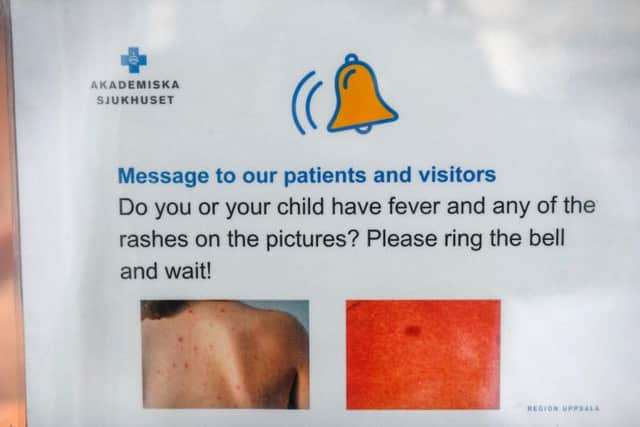Suspected case of ebola in Sweden


Region Uppsala, which oversees several hospitals and medical clinics north of Stockholm, said a test had been carried out on the patient, who was not identified, adding a result would be available later.
In its statement, Region Uppsala said it was so far "only a matter of suspicion", adding: "Other diseases are quite possible."
Advertisement
Hide AdAdvertisement
Hide AdIt did not say where the patient had travelled, but Sweden's TT news agency said the patient had returned from a trip to Burundi three weeks ago and had not visited any region with the Ebola virus.


The authorities said the hospital in Enkoping where the patient was first admitted had its emergency room shut down and staff who treated the patient were "cared for". The patient was eventually transferred to an infection clinic in Uppsala.
"The patient came in Friday morning and reportedly was vomiting blood which may be a symptom of Ebola infection," hospital spokesman Mikael Kohler told local newspaper Upsala Nya Tidning.
Eastern Congo currently faces an Ebola outbreak. All major outbreaks have been in Africa, though isolated cases have been reported outside the continent.
The haemorrhagic fever's virus is spread through contact with the bodily fluids of those infected.